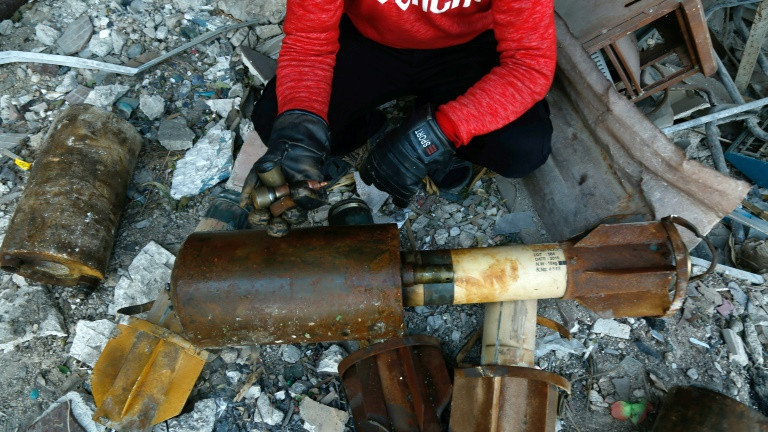
Russia has denied trying to obstruct the investigation and said the inspectors from the Organisation for the Prohibition of Chemical Weapons (OPCW), who arrived in Damascus on Saturday, are due to visit Douma on Wednesday (Photo: AFP)
The French government said Tuesday that it was "highly likely" evidence would "disappear" from the site of a suspected chemical attack in Syria before weapons experts arrive in the area.
Accusing Russia and Syria of denying access to the experts dispatched to probe the alleged April 7 poison gas attack in Douma, the French foreign ministry said: "It is highly likely that evidence and essential elements will disappear from the site, which is completely controlled by the Russian and Syrian armies."
Russia has denied trying to obstruct the investigation and said the inspectors from the Organisation for the Prohibition of Chemical Weapons (OPCW), who arrived in Damascus on Saturday, are due to visit Douma on Wednesday.
In a statement, the French foreign ministry said it was "essential that Syria give full, immediate and unimpeded access to all the OPCW's requests, whether relating to sites to visit, people to interview or documents to consult."
The warning came as the US ambassador to the OPCW, Ken Ward, voiced fears that Moscow might already have "tampered with" evidence at the site.
Russian Foreign Minister Sergei Lavrov rejected the allegation, telling the BBC: "I can guarantee that Russia has not tampered with the site."
Lavrov charged that it was the United States, France and Britain who were "standing in the way" of the investigation by ordering air strikes "in the blink of an eye" before the OPCW team had a chance to do their work.
The three Western powers fired around 100 missiles at three suspected chemical facilities in Syria on Saturday, saying they had proof that the government of President Bashar al-Assad was behind the Douma attack.
Addressing the European Parliament in Strasbourg on Tuesday, French President Emmanuel Macron said the strikes aimed to defend "the honour of the international community" in the face of Syria's suspected violation of the UN Chemical Weapons Convention.
"These strikes don't necessarily resolve anything but I think they were important," he said.


